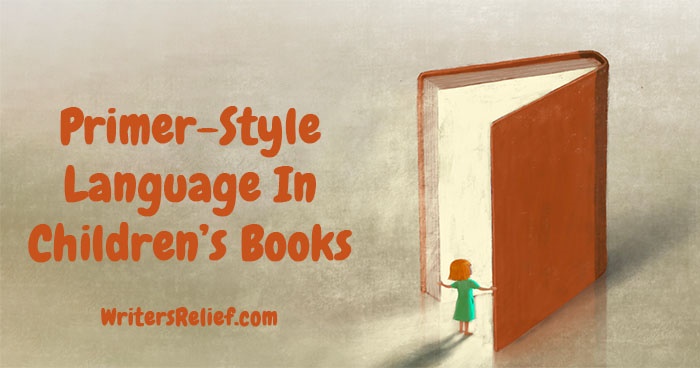
Updated August 2023
When you’re writing books for children, it’s easy to fall into the trap of using primer-style sentence construction. “Primer-style” gets its name from the old-fashioned reading primers many children were forced to read—with exciting stuff like “See Jane run. See Dick run. See Dick and Jane run.” Kids quickly get bored with this type of construction, and so do adults. Whether you write for children or an adult audience, watch for signs of primer-style language in your work.
Children across America cheered when Dr. Seuss’ The Cat in the Hat was first released. It was easy to read and had cool pictures. But best of all, it was interesting. Theodor Geisel had changed the nature of children’s primers by deviating from the traditional monotonous primer style. Instead of using nothing but short, simple, choppy sentences, as children were used to, Geisel worked the same 25 words throughout his text to reinforce vocabulary, and he did this in longer, silly, and varied sentences. It’s no wonder his books continue to fly off the shelves today. When a child has a choice between a Dick and Jane primer and Green Eggs and Ham, that child is far more likely to choose “I like green eggs and ham! I do! I like them, Sam-I-am!”
Dr. Seuss’s books are a good reminder that capturing the reader’s interest is possibly the most important aspect of writing children’s books, and the lesson applies to adult fiction as well. Check the flow of your sentences. If they’re reading choppy, you may need to create more complex and unusual sentence patterns. There’s nothing wrong with short, simple sentences, especially when they’re used with a variety of other, more complex sentences. Short sentences pack a punch, but variety helps keep the reader—young or old—alert and interested.
Here’s how to create complex sentences:
Combine independent clauses
We traveled to the desert. We forgot to bring water.
We traveled to the desert but forgot to bring water.
We traveled to the desert; however, we forgot to bring water.
Use a subordinate clause
Officer Smith had only two years on the job. He was assigned to the toughest neighborhood.
Although Officer Smith had only two years on the job, he was assigned to the toughest neighborhood.
Eliminate repetition
My dog is a Beagle. My dog is named Sally. My dog loves to run along the riverbank.
My dog Sally is a Beagle who loves to run along the riverbank.
Use the conjunction “and” to join two related ideas
In school Sally learned to multiply double digits. She also learned how to divide fractions.
In school Sally learned to multiply double digits and divide fractions.
Use the conjunction “but” to show contrast
Officer Smith had only two years on the job. He was assigned to the toughest neighborhood.
Officer Smith had only two years on the job, but he was assigned to the toughest neighborhood.
Use a participle phrase
Mr. Jones decided to go bowling without his wife. He wanted to join his friends for a men’s night out.
Deciding to go bowling without his wife, Mr. Jones planned to join his friends for a men’s night out.
Use an absolute phrase
Bob clutched his trophy firmly to his chest. He left the bowling alley with a triumphant grin.
His trophy clutched firmly to his chest, Bob left the bowling alley with a triumphant grin.
For more helpful articles on writing techniques, sign up for our free newsletter Submit Write Now! for writers, delivered monthly to your email in-box!



















0 Comments